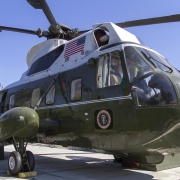Revisited: What is the United Nations Malaysia Mission?
Topic of Study [For H2 History Students]:
Paper 2: Regional Conflicts and Co-operation
Source Based Case Study
Theme III Chapter 1: Inter-state tensions and co-operation: Causes of inter-state tensions
Historical background: The Conflagaration in Malaysia
When the Malayan Prime Minister Tunku Abdul Rahman proposed the concept of a Malaysia Federation in May 1961, there was no outright objection by the neighbouring countries, including Indonesia. However, Indonesian sentiments changed in January 1963, whereby the Foreign Minister Dr. Subandrio declared a policy of Konfrontasi (Confrontation) towards Malaysia. Indonesian troops engaged in cross-border raids and anti-Malaysia propaganda was spread to oppose the formation.
The Manila Accord: A truce?
Even so, the parties involved were not completely opposed to make amends through diplomacy. From 7-11 June 1963, the Philippine President Macapagal hosted a meeting in Manila for Indonesian President Sukarno and the Tunku.
During the meeting, the leaders signed the Manila Accord, which expressed their mutual desires to consider the wishes of the people in North Borneo (Sabah) and Sarawak when deciding on the formation of the Malaysian Federation. In particular, the results of a referendum would be taken into account based on the context of the United Nations General Assembly Resolution 1541 (XV), Principle 9 of the Annex that advocates the principle of self-determination.
(b) The integration should be the result of the freely expressed wishes of the territory’s peoples acting with full knowledge of the change in their status, their wishes haying been expressed through informed and democratic processes, impartially conducted and based on universal adult suffrage. The United Nations could, when it deems it necessary, supervise these processes.
An excerpt taken from the United Nations General Assembly Resolution 1541 (XV), Principle 9 of the Annex.
The United Nations Malaysia Mission
Following the signing of the Manila Accord, the United Nations Malaysia Mission led by Secretary-General U Thant was formed in August 1963 to ascertain the wishes of the people of North Borneo and Sarah prior to the creation of the Malaysian Federation. The Tunku agreed a referendum would be held before the Federation was formed, whereas Sukarno would not oppose the Federation if the majority supported it.
However, the Tunku’s decision to sign the London Agreement on 9 July 1963 was deemed problematic by Sukarno. The Agreement stated that the Malaysian Federation would be formed on 31 August 1963. Chronologically, the United Nations Malaysia Mission Report was only published on 14 September 1963, suggesting that the Tunku’s move may have been premature and a violation of the Manila Accord.
But even before anything had been done, before anything had been ascertained, before the U.N. mission’s inquiry had been completed, Tunku Abdul Rahman Putera already insisted that on 16 September Malaysia should be formed.
Why should he make decisions even while the U.N. team’s work was still not completed?
[…] Likewise, I am not pleased by the manner in which the people’s desires were assessed. In Manila, I said that the survey should be conducted in a manner in accordance with article 1541 of the U.N. [Charter], that the survey should be a truly democratic one.
An excerpt taken from Sukarno’s speech at an anti-Malaysia mass rally in Yogyakarta, 25 September 1963.
Notably, the United Nations Malaysia Mission Report concluded that “there is no doubt about the wishes of a sizeable majority of the peoples of these territories to join in the Federation of Malaysia”. Even so, U Thant expressed dismay at the Tunku’s decision to set an official date for the formation of Malaysia even before the report was concluded.
I later informed the Governments concerned that I would endeavour to report my conclusions to them by 14 September. During the course of the inquiry, the date of 16 September 1963 was announced by the Government of the Federation of Malaya with the concurrence of the British Government, the Singapore Government and the Governments of Sabah and Sarawak, for the establishment of the Federation of Malaysia. This has led to misunderstanding, confusion, and even resentment among other parties to the Manila agreement, which could have been avoided if the date could have been fixed after my conclusions had been reached and made known.
An excerpt taken from the United Nations Malaysia Report titled “Final Conclusions of the Secretary-General“, 14 September 1963.
What can we learn from this article?
Consider the following question:
– How far do you agree that the Konfrontasi occurred mainly as a result of political disagreements?
Join our JC History Tuition to learn more about Inter-state Tensions. The H2 and H1 History Tuition feature online discussion and writing practices to enhance your knowledge application skills. Get useful study notes and clarify your doubts on the subject with the tutor. You can also follow our Telegram Channel to get useful updates.
We have other JC tuition classes, such as JC Math Tuition and JC Chemistry Tuition. For Secondary Tuition, we provide Secondary English Tuition, Secondary Math tuition, Secondary Chemistry Tuition, Social Studies Tuition, Geography, History Tuition and Secondary Economics Tuition. For Primary Tuition, we have Primary English, Math and Science Tuition. Call 9658 5789 to find out more.











